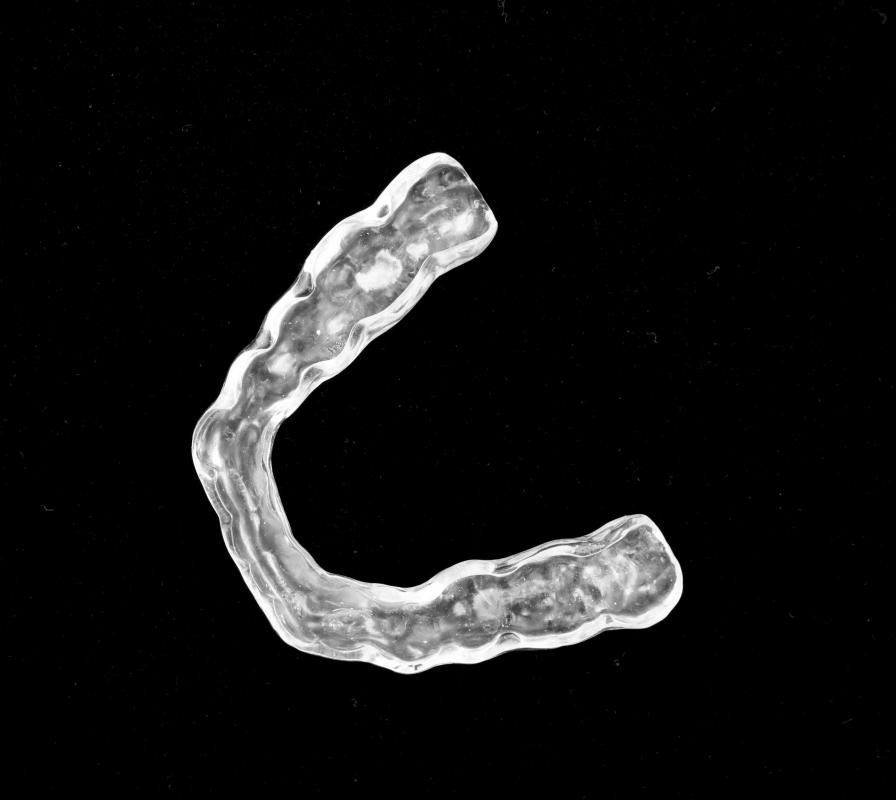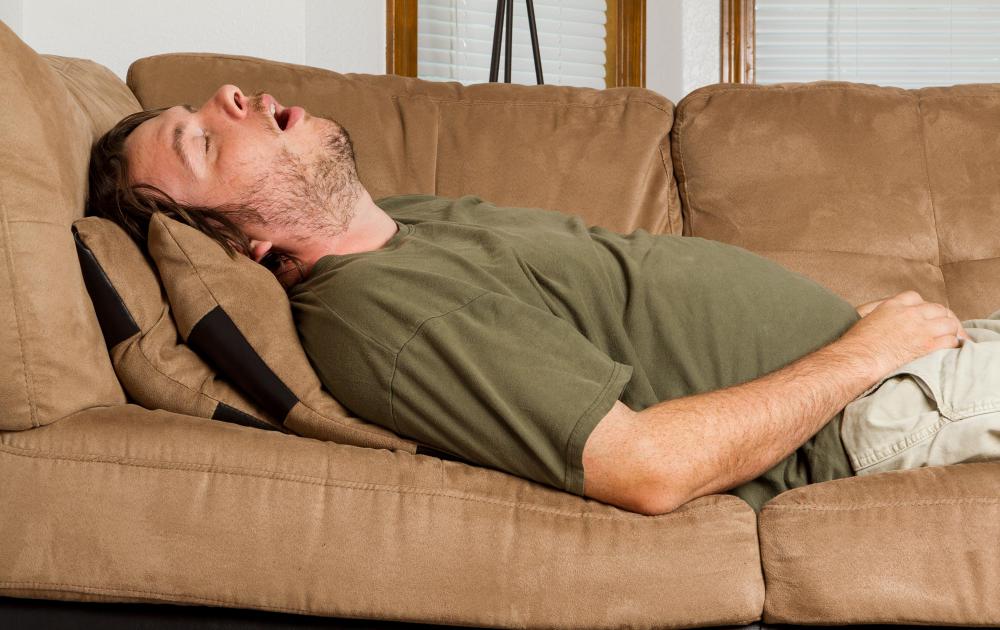At TheHealthBoard, we're committed to delivering accurate, trustworthy information. Our expert-authored content is rigorously fact-checked and sourced from credible authorities. Discover how we uphold the highest standards in providing you with reliable knowledge.
What is a Dental Splint?
The term “dental splint” is used to refer to several types of orthodontic devices that are designed to address dental problems such as loose teeth and bruxism, in addition to problems with snoring and apnea. Splints are fitted by a dentist who ensures that the split conforms to the patient's teeth, and they vary in cost, depending on the type of splint and the planned application.
Dental splinting, used to treat loose teeth, involves joining teeth together. The splint stabilizes teeth so that they are less likely to move, which can weaken the teeth and cause them to fall out. It may be used for temporary stabilization of loose teeth, or to address ongoing issues; it is important to address the underlying cause of the looseness, as a splint cannot resolve the problem.

For people with temporomandibular joint disorder (TMJ) and bruxism, a splint is used to protect the teeth from damage at night. The hard one is worn like a mouthguard fitted over the top or bottom teeth, depending on the needs of the patient. It is important to fit the splint to the patient's mouth, as an ill-fitting device can put strain on the teeth or cause discomfort. In these patients, people grind down the splint, rather than the teeth, and strain on the teeth and jaw can be reduced.

Snoring and sleep apnea can also sometimes be addressed with the use of a dental splint. A properly fitted splint can keep the airway clear, reducing breathing problems at night. In this case, the patient may need to consult several medical providers to discuss various treatment approaches, as a splint may not be the best option, and in some cases, splints may be contraindicated.

Like other types of devices worn in the mouth, a splint must receive proper care. Dirty ones can spread infection, which can be a serious problem for the patient, and those that are not stored and handled properly may deform, which can put stress on the teeth and jaw. Care directions and a case for storing the splint when it is not in use are usually provided by the dentist who fits the device, and the dentist may recommend follow up visits to confirm that the splint fits properly and is in good condition. Patients who experience pain or other issues while wearing a splint should report these problems to their dentists.
AS FEATURED ON:
AS FEATURED ON:















Discussion Comments
Apnea is when the throat/airway is blocked - simply speaking - by a lazy throat/tongue relaxing and blocking the airway. A splint will bring the jaw forwards to allow the airway to open.
I am so excited to have my husband try using a dental splint as an anti snore device! His snoring is the worst! I can't get a good nights sleep, and I'm not a happy person when I don't get sleep.
I hope I can get one of these over-the-counter, because he hates going to the doctor. It will take me forever to get him to go. I'm hoping I can just go pick one up today, and actually get some sleep tonight!
@geronimo8 -- Sleep apnea dental splints may cause some discomfort when you first start using it. There may be an adjustment period during which you will grown accustomed to sleeping with this device in your mouth.
Some people get headaches at the beginning of splint use, and have to use the splint for only short periods of the night at first. Once they get used to having it for a set period of time, they increase the time, until they can wear it through the night.
On the other hand, some people can wear it through the night from the start. I imagine it's different for each person.
In my opinion, a little bit of discomfort at the beginning would be worth it, if it helps you breathe.
A friend of mine is getting a dental splint to be used as a sleep apnea device.
I always thought sleep apnea was a problem within the nose, so I don't really understand how this splint in her mouth is going to help, but I guess the doctor knows best, right?
She's a little nervous about getting the splint though -- she's afraid that it's going to be very uncomfortable to sleep with it in her mouth. Does she need to worry about this? It doesn't sound painful to me.
Post your comments